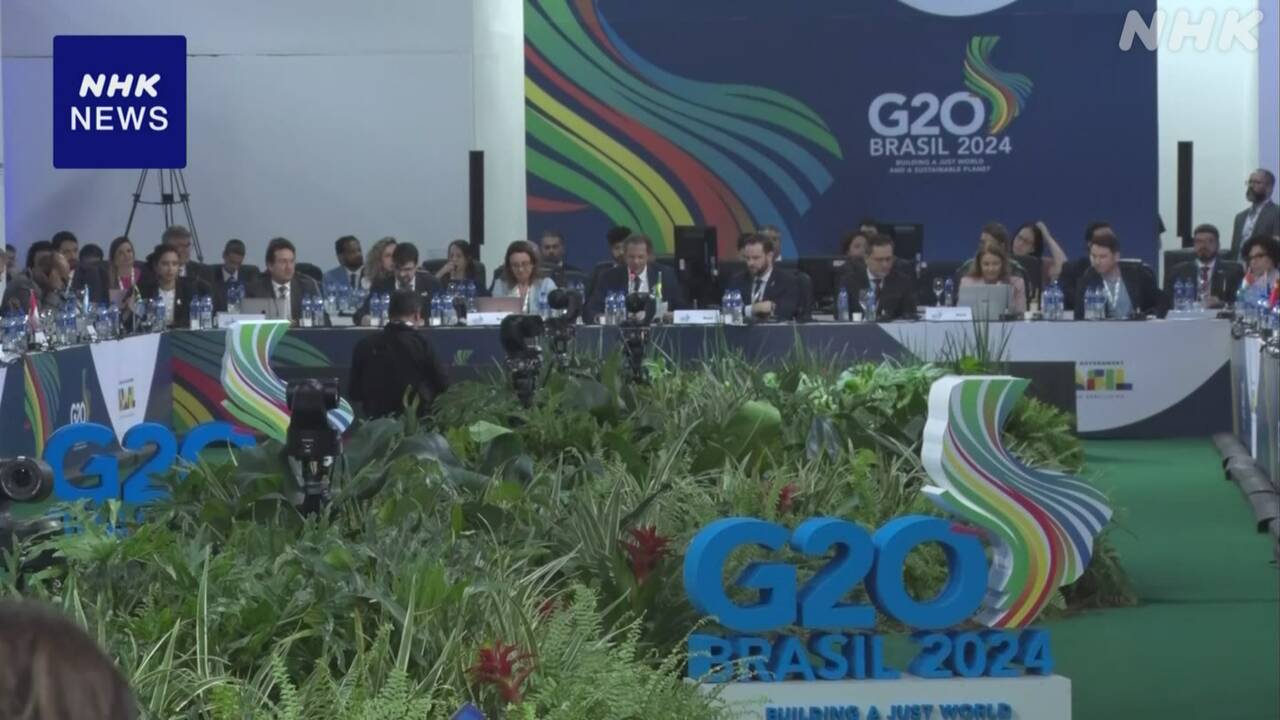The G20 (G20) finance ministers and central bank governors meeting held in Sao Paulo, Brazil, ended on the morning of March 1st, Japan time.
Although they shared the recognition that there was a high possibility of a soft landing for the future of the world economy, they were unable to adopt a joint statement due to differences in positions regarding the situation in Ukraine, leaving challenges to the unity of the G20.
At the two-day conference, discussions were held on themes such as the world economy, poverty and inequality, and while there was uncertainty about the future of the world economy, with interest rate hikes being pursued by each country causing a cooling effect, there was a possibility of a soft landing. We shared the recognition that we have a high level of sexuality.
However, due to differences in the positions of each country regarding Russia's invasion of Ukraine, the meeting was unable to adopt a joint statement and only released the chairman's summary, leaving challenges to the unity of the G20 once again.
Brazil's finance minister: ``Geopolitical issues to be discussed at the foreign ministers' meeting''
At a press conference after the conclusion of the G20 meeting, Finance Minister Adazi of Brazil, who holds the G20 Presidency, said, ``Last week's G20 Foreign Ministers' Meeting "The failure to reach common language affected the formation of an agreement."
He added, ``While we are extremely concerned about conflict and desire peace, geopolitical issues should be discussed at a foreign ministers' meeting,'' stating that it would be appropriate to discuss issues such as the invasion of Ukraine at a separate meeting. showed this recognition.
Bank of Japan Governor Ueda “We will assess the wage increase situation in the spring labor union”
Bank of Japan Governor Ueda, at a press conference after the conclusion of the G20 (finance ministers and central bank governors meeting of 20 major countries), stated that the price stability target is a prerequisite for reversing the current large-scale monetary easing measures, such as lifting negative interest rates. When asked about the outlook for the realization of this, he said, ``As of now, we have not yet reached the point where we can foresee it.To confirm that we can foresee it, we will continue to work to confirm whether a virtuous cycle of wages and prices is starting to work properly.'' said.
He added, ``This year's spring negotiations are one of the major points in the confirmation work.The demands from the labor side have exceeded last year's level, and we are paying attention to the fact that many companies are showing a positive attitude.'' , expressed their intention to assess the situation regarding wage increases, including the results of intensive responses to the spring labor union in March.
There is a widespread view in the market that the time is near for the Bank of Japan to lift negative interest rates, which would be the first interest rate hike in 17 years, and there is growing interest in Governor Ueda's statements and decisions.

